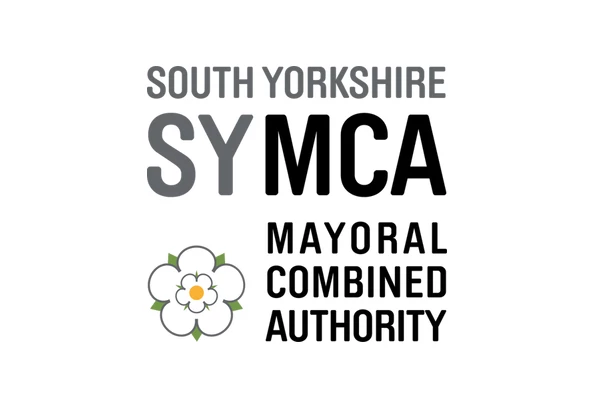
Member Article
Two days to go: London businesses have their say on the General Election
With the General Election a few days away, the main political parties’ are ramping up their regional presence and rallying the public hoping to sway those floating voters.
However, a recent YouGov survey commissioned by First Data Merchant Solutions (FDMS) found that over one fifth of SMEs in London admitted that they don’t understand the main political parties’ plans for small and medium businesses. 22 per cent of those questioned said that their business is not sure how the main parties’ policies could affect small and medium businesses in the UK.
Whether the policies might bring changes to existing red tape, increase funding or ensure further support, there is still a sizeable chunk of the small business community that have been left in the dark as to how their businesses could be helped, or hindered.
For the final week of our Election coverage, we approached businesses in London to get their views on next week’s big event.
Nick Barnett, CEO at Appsme.com, a London-based app development company, believes that the proposed international tax reform would be difficult to police, he said: “I’m a big believer in fundamental economics.
“If there’s more money coming in than going out, there’s a surplus that can be used to grow/build/invest etc. The opposite simply creates debt – and accumulating debt is just creating a problem for the future.
“Beyond general economic policy, there is a broad range of issues that many small businesses face today, many of which could be helped with specific policy measures.
“Business rates proposed by the current Government are based on out-dated measures and ripe for a review. An obvious idea could be to simply scrap business rates altogether and replace them with a business-earnings related tax instead.
“However, in practice this poses all sorts of complications, chiefly as business rates are collected by Local Authorities whereas corporation tax is collected by central government/HMRC.
“There’s been lots of commentary around multi-nationals using international tax policy to ‘optimise’ their tax planning. Once again this places traditional, national/local players at a disadvantage, but is also difficult to legislate for with unilateral global tax bodies – which simply isn’t going to happen!
“Maybe the answer here is not to look for opportunities to increase taxes for the offending multinationals to current UK levels, but perhaps to seek opportunities to bring down taxes for types of UK based retailers to level the playing field.
“Generally, I think the Government is doing a good job of supporting small businesses. There’s always more that can be done, but in my opinion, things like Government grants aren’t the way to go. Help should be focused on incentives to channel private investment in to start-ups and it should be made easier for SMBs to work with Government bodies at all levels.”
Michelle Wright, CEO of Cause4, (pictured right) advises charities and social enterprises on growth and fundraising and has been reviewing each of the party’s manifestos to see what the UK’s not-for-profit sector could be facing. She said: “As the May 2015 election moves closer it is interesting to see what might be offered to charities and social enterprises by the main parties.
“The value of the charitable sector to the economy is clear, especially in terms of job creation, but the manifesto priorities are rather mixed. Whether it’s a call to repeal the Lobbying Act or leaning on charities to help deliver public services, including a new cancer strategy proposed by the Conservatives, the not-for-profit sector plays a big part in each party’s manifesto.
“Calls for greater transparency about how charitable funding will surely be greeted with open arms right across the sector, but other recommendations – such as the Conservative proposal requiring housing associations to offer their tenants the right to buy their properties – will be less popular.”
Right to Buy should go hand in hand with encouraging an active lettings market, unencumbered by government legislation, according to Nicholas Leeming, chairman of national estate agents Jackson-Stops & Staff: “The property revolution continues and we are delighted to see the right to buy being extended to Housing Associations. Jackson-Stops supports any initiative that enables social housing tenants to buy their own property, provided that the funds realised are reinvested in the sector.
“But while encouraging the principle of home ownership this should go hand in hand with an active and vibrant lettings market, unencumbered by government legislation and with the ability for landlords and tenants to agree the length of lease.”
Alexandra Maher, founder of London startup Style Tube, which is currently competiting in Richard Branson’s Pitch to Rich competition, said: “One of the key issues facing UK businesses, is the question of whether we remain as part of the European Union (EU). I fundamentally believe that our ties with the EU are not only an integral part of our national identity, but essential for safeguarding our economy and our business which relies on good relationships with countries in the EU.
“The EU is the largest commercial market and most developed political union in the world. Is that something we can dismiss? I certainly don’t think so. Now that our economy is starting to recover, is strikes me as obscene to even consider leaving the EU and cause further instability and alienation from our neighbours. Former Labour leader Tony Blair’s comment that “A decision to exit Europe would say a lot about us, and none of it good”, is something I wholeheartedly agree with.
“From the perspective of someone looking to establish their business fully within the next 12 months, I need a party in government with a track record for economic stability, and for whom business growth is a priority. So far, the only party I see that intends to put businesses first are the Conservatives, although it unnerves me how little detail they are willing to provide on exactly how this will be achieved. It also appears that while ‘strengthening the economy’ appears to be the Tory mantra for this election, this seems to be at the cost of our welfare system.
“Despite the Conservatives promising to give the NHS the extra £8bn a year by 2020 that NHS England boss Simon Stevens has asked for, this has rarely come up since throughout the campaign, leaving me to question the sincerity of this promise. Whatever may be good for businesses, I won’t be able to vote for a party who won’t be making the preservation of the NHS a real priority. “
Emma Clark, QA Apprentice from Northolt, London-Borough-of-Ealing, said: “Young people are perceived as naive and dis-engaged when it comes to politics and voting, when in reality we aren’t optimistic about politics due to the fact cannot relate to it. We feel as if there are no policies that relate to or affect us in a positive way, and that our vote will not be heard.
Party manifestos talk of childcare, immigration and the NHS. Whilst they are all important and will affect our lives in one way or another, there is no policy that relates to our generation and the struggles we face.
“Each party wants to encourage jobs, and yet apprenticeships are not a priority as a way to encourage young people into work and help them gain the experience and qualifications essential in later life. Apprenticeships are not seen as an alternative option to university, but rather a last option to gain a qualification.”
Martin Campbell, managing director at fintech start-up Ormsby Street, wants to see the new Government instil a culture of integrity in British business: “What’s been interesting about this campaign, is that all parties have at some stage declared themselves to be the ‘party of small business’.
“There have been a succession of open letters in the press declaring as such, signed by hundreds of SME owners to really make the point. Even UKIP did so, despite the widely acknowledged view that leaving the EU would be disastrous for so many small business in the UK!
“But what is significant is that the needs and concerns of small businesses are higher on the agenda than ever before, with parties across the political spectrum recognising the importance of SMEs to the overall economy.”
“There have been promises of tax breaks and trebling of start-up loans, which both acknowledge the importance of improving cash-flow for small businesses. Cash-flow is vital for business growth and is an issue we see daily, brought on in part by late invoice payment.
“Ormsby Street data analysis recently revealed that the late payments pursued within our CreditHQ platform average £6,142, a significant amount for any small business.
“There’s a culture in British business of late payment - or to put it another way - saying one thing and doing another. Whilst the new Government may take action to address this with legislation, I think that the real change that they could bring about would be for whichever party wins, to stick to the promises that they have made to us - yes, even when it hurts them.
“A culture of integrity isn’t something that can be legislated for, but one which our politicians can lead by example. So I would encourage a clear, principled effort to do the right thing as a great example to set to British business.”
Robert Bartlett, Group CEO of London-based residential property specialists, Chestertons, said: “This will be one of the closest elections in decades and property has never been higher up the political agenda, with pretty much all parties pledging to build more new homes and backing changes to property and wealth taxes.
“We can’t predict the outcome of the vote or the discussions between the parties that may follow, but we can draw conclusions as to the types of policies we might see introduced under various political permutations.
He continued: “Labour, the Lib-Dems and the Greens all propose major reform to the private rental market, including national landlord registration schemes, minimum terms for tenancies and rent reviews and, in some cases, direct rent controls.
“While we welcome the aim of a fairer, more transparent and accessible rented sector, the main factor behind rising rents is that the available supply of good-quality homes is being outstripped by rising demand.
“If a lot of new legislation is imposed on landlords quickly and without proper consultation, there is a real danger that properties may actually be withdrawn from the market, which will only serve to exacerbate the very problems the new laws seek to address.”
He concluded: “Ultimately we need to see many more housing starts in all areas of the UK and, with the exception of the Greens, who favour refurbishment and energy efficiency improvements over building new houses, all of the parties are in agreement that hundreds of thousands of new homes of all sizes are needed to meet the growing housing shortage.
Missed our previous weeks’ election coverage? Head over to our dedicated page.
This was posted in Bdaily's Members' News section by Ellen Forster .



 How advancements in technology are shaping the future of the economy in North East England
How advancements in technology are shaping the future of the economy in North East England
 South Yorkshire Craftsmanship and Innovation: A Tale of Heritage and Growth
South Yorkshire Craftsmanship and Innovation: A Tale of Heritage and Growth
 Demystifying Degree Apprenticeships
Demystifying Degree Apprenticeships
 Industry-focused apprenticeships pave the way for a bright future in science manufacturing
Industry-focused apprenticeships pave the way for a bright future in science manufacturing
 What’s the best hosting plan for a business website?
What’s the best hosting plan for a business website?